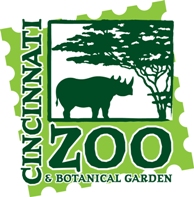
2019 Program
We are posting speaker bios as we receive them–for a complete list of speakers, please see the schedule overview, below.
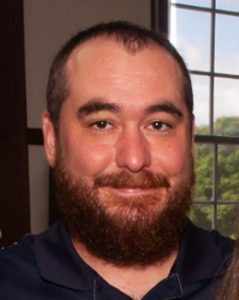 Adam Baker
Adam Baker
Adam M. Baker is a PhD Candidate in the Entomology Department at the University of Kentucky where he studies conservation of the monarch butterfly and other pollinators under the direction of Dr. Daniel A. Potter. He has been investigating the iconic monarch butterfly for the past four years and pays close attention backyard and small garden conservation in urban and suburban areas. Adam hails from Southwest Michigan and studied environmental journalism and agricultural sciences as an undergraduate.
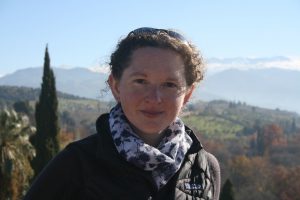 Katherine Baldock
Katherine Baldock
Dr. Katherine Baldock is a Knowledge Exchange Fellow at the University of Bristol, funded by NERC, one of the UK research councils. She is a community ecologist who uses ecological interaction networks to study plant-pollinator communities and her current research has a particular focus on pollinators in urban areas. Katherine is working with a range of stakeholders, including local councils, wildlife trusts and policymakers, to examine how urban land management can be improved to benefit pollinators. Prior to her fellowship Katherine’s postdoctoral research, also at the University of Bristol, involved managing the Urban Pollinators Project, a UK wide project assessing pollinators in urban environments. She has also researched pollinators in more tropical environments, including the African savannah during her PhD research and the Costa Rican dry forest.
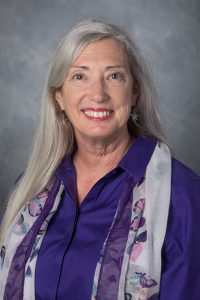
Kris Braman
Dr. Kris Braman joined the University of Georgia Entomology faculty in 1989 after earning degrees from the State University of New York (SUNY) in Forestry and the University of Kentucky. She served as Director of the Georgia Center for Urban Agriculture from 2011 to 2016. She has developed management plans for insects that affect turf and ornamentals; taught General Entomology, Biological Control and Plants and Pollinators for undergraduate and graduate students; and provided training for Green Industry Professionals. She has served as President of both the Georgia Entomological Society and the South Eastern Branch of the Entomological Society of America (SEB-ESA). Dr. Braman has been recognized as a Distinguished Alum of the Entomology Department at the University of Kentucky, as a recipient of SEB-ESA’s Distinguished Achievement Award in Horticultural Entomology and as a recipient of the GGIA Environmental Friend of the Year Award. Her journal articles and book chapters reflect her research focus on insect-plant interactions, Integrated Pest Management, and environmental conservation issues. Her studies blend basic and applied components to improve the sustainability and profitability urban plant production and landscape pest management. Research emphasizes integrating pollinator protection, natural enemies and alternative control technologies into IPM through enhanced understanding of tritrophic interactions in urban plant systems. Dr. Braman currently serves as Professor & Head of Entomology.
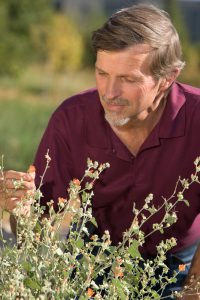
Jim Cane
Jim Cane has spent many of the past 4 decades studying the nesting and pollination ecologies of native non-social bees of North America and elsewhere. He has studied pollination and pollinators of alfalfa, cranberries, blueberries, squashes, almonds, onions, and raspberries, as well as 13+ native wildflower seed crops used for restoration seed. He has published on native bee nesting biologies, chemical ecologies, foraging behaviors, floral specializations, community dynamics and conservation, especially with regard to wildfire. He is currently multiplying 5 species of native Osmia bees for these applications. For the past 20 years, he worked for the US Department of Agriculture at the Pollinating Insect Research Unit at Utah State University in Logan, Utah, USA. Prior to that, he was on the faculty of Auburn University in Alabama and a post-doc at Berkeley following a Ph.D. from the University of Kansas.
 Patrick Fitzgerald
Patrick Fitzgerald
Patrick Fitzgerald leads the National Wildlife Federation’s Urban Wildlife programs and policy change efforts, including partnerships with nearly 700 cities, counties, and communities though the Federations’ Community Wildlife Habitat and Mayors’ Monarch Pledge programs. Through these programs and others, NWF is committed to helping wildlife and communities thrive by increasing tree canopy, implementing green and natural infrastructure projects, promoting native plant gardening and landscaping and increasing resilience in low-income communities. Patrick created the Mayors’ Monarch Pledge in 2015 and authored a guide titled “Monarch Conservation in America’s Cities: A Solutions Guide for Municipal Leaders.”
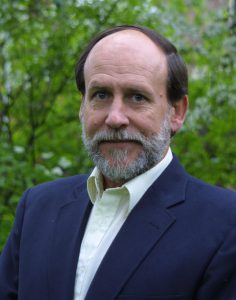 Robert Geneve
Robert Geneve
Dr. Robert Geneve has been a faculty member of the University of Kentucky, Department of Horticulture for over 30 years doing teaching and research in ornamental plant production and propagation. He is an author of several books including co-authoring the textbook “Hartmann and Kester’s Plant Propagation: Principles and Practices.” Dr. Geneve has been recognized as a Fellow of the American Society for Horticultural Sciences and the International Plant Propagator’s Society – Eastern region. He is a frequent speaker at national and international conferences on subjects ranging from plant propagation, seed biology and plant morphology.
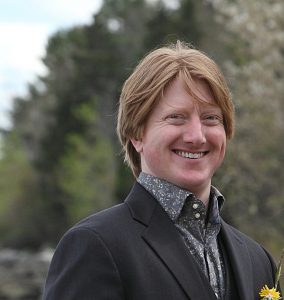 Damon Hall
Damon Hall
Damon M. Hall, Ph.D. is an Assistant Professor in the School of Natural Resources and Biomedical, Biological & Chemical Engineering at the University of Missouri. He completed a PhD in Wildlife and Fisheries Sciences as a Boone & Crockett PhD Fellow in Conservation Policy at Texas A&M University. He holds a MA in Communication and a BS in Agriculture concentrating on Forestry and Natural Resources both from Purdue University. At Purdue, he was apiary manager of Dr. Hunt’s Honeybee Genetics Lab. He was a National Science Foundation-supported Sustainability Science Postdoctoral Research Fellow at the University of Maine’s Sustainability Solutions Initiative. He joined the faculty at Saint Louis University in 2013. His research examines the interactions between social and ecological systems where science, policy, and culture meet. It is problem-oriented and audience-focused pursuing questions of how to make knowledge usable for transitioning towards sustainability. His current research explores citizen-engaged policy approaches to water resources planning and urban bee conservation. Website: http://www.sustainabilitysciencelab.org/
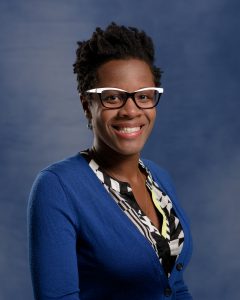 Alexandra Harmon-Threatt
Alexandra Harmon-Threatt
Dr. Alexandra Harmon-Threatt completed her BS in Environmental Studies at Washington University in St. Louis and then continued on to the University of California Berkeley to do her PhD in Environmental Science Policy and Management under Dr. Claire Kremen. Since arriving at the University of Illinois, Urbana-Champaign, her work has focused on understanding the patterns and processes that govern plant-pollinator interactions and diversity in natural systems. She is particularly concerned with identifying how bees respond to various environmental disturbances including habitat fragmentation, fire, grazing, and pesticides. Alongside her students, she runs a vibrant research and outreach program that has been awarded over two million dollars to improve our understanding of limitations to pollinator conservation and restoration.
 David Held
David Held
Dr. David Held is a Professor in the Entomology and Plant Pathology Department at Auburn University. His graduate training in Entomology was received under the direction of Dr. Daniel Potter at the University of Kentucky. Before joining Auburn University in Fall 2008, he had statewide Extension responsibilities for turfgrass and ornamental entomology with Mississippi State University (2003-2008). At Auburn University, he has a 75% research-25% teaching appointment including courses in Economic Entomology, General Entomology, and Landscape Entomology. Dr. Held’s research focuses on the ecology and management of insect and mite pests of ornamental plants and turfgrass. He has published 11 book chapters, and 63 scientific articles in peer-reviewed journals including two Annual Reviews and a BMP document for pollinator protection in turfgrass. His book, Urban Landscape Entomology, is the first text and reference book in this subject area. Most of his 12 previous graduate students now hold prominent positions in the Green Industry, US EPA, US Golf Association, or work as instructors at secondary or post-secondary schools. He has served as a subject editor and reviewer for multiple journals, and on grant review panels for USDA-NIFA. He has held leadership roles in the Entomological Society of America and is currently the Assistant Director of Alabama IPM programs.
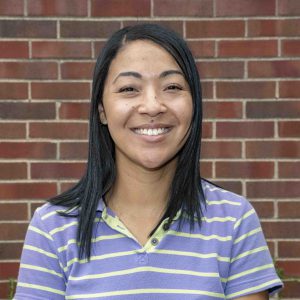 Elizabeth Long
Elizabeth Long
Dr. Elizabeth Long is an assistant professor of Entomology at Purdue University, in West Lafayette, IN, with research and extension efforts focused on the integrated pest management of pest and beneficial insects in horticultural crop production systems. Prior to joining Purdue University, Dr. Long was an assistant professor at Ohio State, focusing on insect management in winegrapes and specialty crop muck vegetables. Currently, Dr. Long’s research program focuses on understanding the ecological interactions between plants, insects, and their environment, and how these interactions scale up to influence pest management strategies.
Dr. Long received her PhD from the University of Missouri in Plant, Insect & Microbial Sciences where she researched interactions between insect communities and crop plants that have implications for insect-vectored pathogens. After earning her PhD, Dr. Long conducted postdoctoral research at Purdue University in Indiana that focused on understanding the various pathways that pollinators are exposed to pesticides in agricultural landscapes.
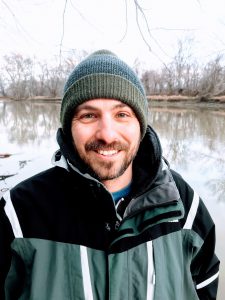 Kevin McCluney
Kevin McCluney
Dr. Kevin McCluney is currently an Assistant Professor in the Department of Biological Sciences at Bowling Green State University in NW Ohio. He received his PhD at Arizona State University, where he became interested in how animal water balance influences food webs. During his PhD, he worked on a collaborative project with Stan Faeth, studying how water balance influenced ants, aphids, and lady beetles on urban landscaping plants. Post-PhD, McCluney worked with Steve Frank at NC State examining how urbanization influences animal water balance in multiple cities and in food webs in Raleigh, NC. Most recently, McCluney has worked with his former PhD student Justin Burdine (now faculty at, Cornerstone University in MI), investigating effects of urbanization on bee physiology and ecology.
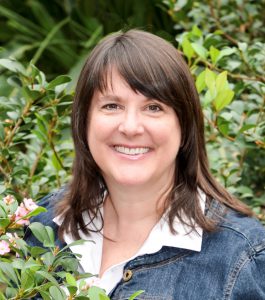 Mary Phillips
Mary Phillips
Mary Phillips provides strategic and operational oversight of the National Wildlife Federation’s Garden for Wildlife™ movement, which has grown to involve 5-7 million people creating habitat where they live, work, play, learn and worship. Garden for Wildlife is the nation’s oldest and largest Backyard Habitat program spanning four and half decades. Today there are close to 235,000 NWF Certified Wildlife Habitats® across North America and U.S. Embassies worldwide. Since joining National Wildlife Federation in 2014, under Mary’s leadership, individual and partner participation has quadrupled to millions planting for the monarch butterfly, pollinators and birds across Garden for Wildlife programs and campaigns. Simultaneously, Mary facilitates organization wide conservation strategies for pollinators, monarchs and other indicator species. She also coordinates all aspects of the national program’s strategic planning, management, partnership development, program performance and evaluation.
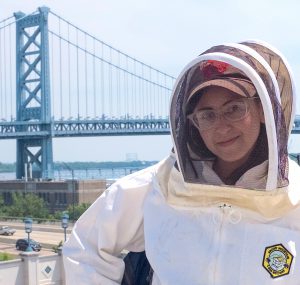 Karmi Oxman
Karmi Oxman
Karmi works with Dr. Doug Sponsler and Dr. Christina Grozinger of The Pennsylvania State University and Drexel’s Academy of Natural Sciences. They use decoded honey bee dances to reveal the seasonal transition from broadly distributed to spatially discrete foraging in the city of Philadelphia. Karmi is especially interested in the value of the foraging area clouds created by decoded dances, as they are superimposed upon the map of Philadelphia. She is excited to use these maps as a visual method for increasing the connectedness of Philadelphians to bees in their shared landscape. Karmi’s interest in pollinators flourished under the mentorship of Dr. Mary Garvin during her BA at Oberlin College. She obtained her MSc (2017) in Agroecology from the Hebrew University of Jerusalem, Israel. Karmi’s MSc thesis, under the advisory of Dr. Sharoni Shafir and Dr. Ofer Feinerman, focused on error and reliability in waggle dance communication. Karmi continued her study of animal behavior from 2017-2019 at the University of Pennsylvania in Dr. Maria Geffen’s Laboratory of Auditory Neuroscience. Karmi began her PhD in the lab of Dr. Sean O’Donnell at Drexel University this fall. She is exploring thermal physiology and behavioral changes in social insects associated with climate change in Israel’s Negev Desert.
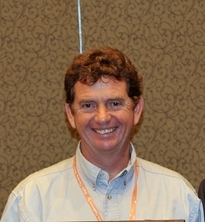 James Quinn
James Quinn
James Quinn is a Field Specialist in Horticulture for University of Missouri Extension (15 years). A ‘farm boy’ from Iowa, he started at Iowa State University but completed his BS at UC Davis in Plant Science (83) and his MS in horticulture at Purdue University (87). He was a greenhouse grower for nine years in Michigan. Since moving to Missouri, he’s been involved in a range of agriculture projects. He’s led MU’s effort developing this pollinator program, conducted several trainings and is co-author on most of its publication series.
 David Smitley
David Smitley
Dr. Dave Smitley works closely with the turf grass, nursery and floriculture industries on identifying insect pest problems, and researching best management practices to address them. Basic and applied research is followed with extension recommendations for growers. Some of Dr. Smitley’s industry contributions include the introduction of Entomophaga maimaiga, a natural fungal pathogen of gypsy moth, with decreased state and forest defoliation due to gypsy moth to less than 1/10th of what is was in the early ‘90s. Development of new strategies for emerald ash borer including product that homeowners can purchase, and the most widely used professional product for landscape trees, as well as the introduction of Ovavesicula popilliae, a natural pathogen of Japanese Beetle, into Michigan in 1999. In the past four years, Dr. Smitley’s lab has worked with the greenhouse and nursery industries to develop best management strategies for growing annuals, perennials, trees, and shrubs that will be safe for pollinators. This led to organizing the National Protecting Pollinators Conference.
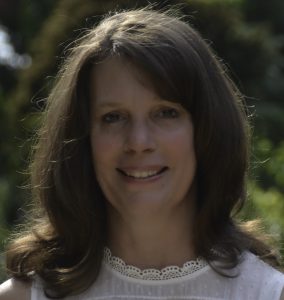 Anne Spafford
Anne Spafford
Ms. Anne Spafford, MLA, is a tenured Associate Professor of Landscape Design in the Department of Horticultural Science at North Carolina State University. She has been teaching for 20 years and won many teaching awards, including being inducted into NC State University’s Academy of Outstanding Teachers, and Teacher of the Year when she taught in the School of Landscape Architecture at Louisiana State University. She and her students have designed and installed several gardens on NC State University’s campus—the Gregg Museum Pollinator Garden, the Greenway Edible Garden, and the Talley Student Center Green Roof, which is a living laboratory. She received her Bachelor’s degree in Horticulture, which provided a foundation in plants, plant sciences, and small scale design. Her Master’s degree in Landscape Architecture provided a foundation in cultural and social issues of design and research applied design as well as experience in designing larger projects. Anne co-authored an award winning book, Rain Gardening in the South: Ecologically Designed Gardens for Drought, Deluge, and Everything In Between (c. 2009 Eno Publishers; Hillsborough, NC). This book was the first of its kind, one of the first books of the publisher, and the first book for her and her co-author, Helen Kraus. Despite these “firsts,” the book received the prestigious Gold Medal Award for Best Technical Book from the Garden Writer’s Association and the Benjamin Franklin Award from Independent Publishers. She just submitted a book manuscript for Pollinator Gardening for the South: Creating Sustainable Habitats Through Science and Art (co-authored with Dr. Danesha Seth Carley) and will be published by UNC Press in 2020.
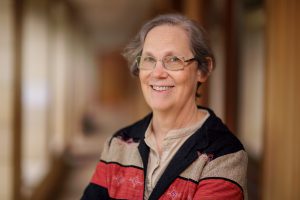 Kimberly Stoner
Kimberly Stoner
Kimberly A. Stoner joined the Connecticut Agricultural Experiment Station in 1987, after receiving her PhD in entomology from Cornell University, and spending a year on a fellowship with the Africa Bureau of the U.S. Agency for International Development. Her PhD and early professional work at the Connecticut Agricultural Experiment Station was in vegetable entomology. In her 30 years at CAES, she has moved from studying plant resistance to insects, to other alternatives to insecticides for managing vegetable insects, to holistic case studies of organic farms, to focusing on bees, including both wild bees and honey bees. She is currently studying bee diversity in Connecticut, pollination of pumpkins and squash, and how bees are exposed to pesticides. She also works with people across Connecticut, including farmers, beekeepers, and community groups, in creating habitat for pollinators.
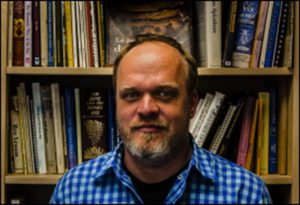 Dennis vanEngelsdorp
Dennis vanEngelsdorp
Dr. Dennis vanEngelsdorp, an Associate Professor at the University of Maryland, has a broad interest in pollinator health. The focus of his current work involves the application of epidemiological approaches to understanding and (importantly) improving honey bee health. Dennis is the founding president of the Bee Informed Partnership (BeeInformed.org) which attempts to provide a platform to collect “big data” on the state of managed honey bee colony health. Analysis of these data is providing important insights into the role management practices and environmental factors (such as landscape, pesticides, and climate) have on colony health. His lab helps run several honey bee health monitoring programs including US national honey bee disease survey. His work has been featured in numerous documentaries, print and electronic media (including a story in the New Yorker, and Time magazine), and he has given a TED talk (https://www.ted.com/talks/dennis_vanengelsdorp_a_plea_for_bees).
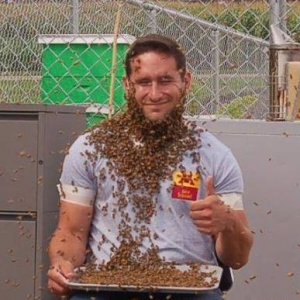 James Wolfin
James Wolfin
James Wolfin is a recent graduate of the University of Minnesota, where he received his MSc in Entomology under the advisement of Drs. Marla Spivak and Eric Watkins. His project, commonly referred to as the bee lawn project, aimed to enhance turf lawn monocultures with low-growing flowers to promote forage availability for native bees and honey bees. James’ project examined how to most effectively establish a bee lawn and evaluate the bee communities that utilized them. Originally from Queens, New York, James’ interest in bees and flowering plants arose as an undergraduate student at The University of Delaware, where he studied the foraging behavior of honey bees. James currently works as the manager of sustainable landscape design at Metro Blooms, a non-profit organization in Minneapolis, Minnesota.
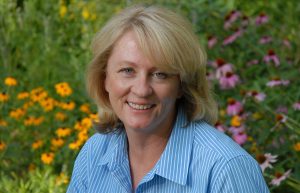 Catherine Zimmerman
Catherine Zimmerman
Catherine Zimmerman, an award-winning director of photography, celebrates her 43rd year as a documentary filmmaker, working primarily on education and environmental issues. Catherine is also a certified horticulturist and landscape designer based in the Yellow Springs, Ohio. She is accredited in organic land care through the Northeast Organic Farmers Association and has designed and taught a course in organic landscaping for the USDA Graduate School Horticulture program. In writing the book and filming the film, Urban & Suburban Meadows, Catherine created a stunning and enticing introduction to meadowscaping that will encourage her readers do away with pesticides, reduce lawn and return their land to a beautiful, natural habitat for native plants and wildlife. Catherine’s latest film release, Hometown Habitat, Stories of Bringing Nature Home, is a collaboration with Dr. Douglas Tallamy. The documentary explores how and why native plants are critical to the survival and vitality of local eco-systems. Included are inspiring stories of habitat heroes across the countries, who are working to bring back nature in their hometowns. Catherine hopes that these projects will help fire up the movement toward making natural landscapes the new landscaping norm.
| Date/Time | Activity |
|---|---|
| Monday, Oct. 7 | |
| 7 - 7:15 PM | Welcome - Steve Foltz, Cincinnati Zoo |
| 7:15 - 8:15 PM | Opening keynote: Dennis vanEngelsdorp, University of Maryland On average 39% of all managed honey bee colonies die in the US each year. Why? |
| 8:15 - 10 PM | Reception |
| Tuesday, Oct. 8 | |
| 9 - 10:35 AM | Session 1: Pollinators in the urban environment: coping with a complex landscape |
| Keynote: Katherine Baldock, University of Bristol Identifying urban pollinator conservation opportunities: integrating research with policy and practice |
|
| Kevin McCluney, Bowling Green State University Physiological approaches to understanding the effects of urban warming on bees |
|
| Karmi Oxman, Pennsylvania State University Decoded honey bee dances reveal seasonal transition from broadly distributed to spatially discrete foraging in Philadelphia’s urban landscape |
|
| 10:50 AM - 12:50 PM | Session 2: Urban pollinator gardens: Navigating plant choice and design |
| Keynote: Robert Geneve, University of Kentucky Floral adaptations – the magical interactions between flowers and their pollinators |
|
| Adam Baker, University of Kentucky Building a better monarch conservation garden |
|
| Anne Spafford, North Carolina State University Urban pollinator gardens: Plants and design |
|
| David Smitley, Michigan State University Planting annual flowers to give pollinators a boost in yards and gardens |
|
| 12:50 - 2:15 PM | Lunch |
| 2:15 - 4:35 PM | Session 3: Scaling up from gardens: Connecting habitats across urban landscapes |
| Keynote: Kris Braman, University of Georgia Where the wild things grow: connecting people and projects to advance urban pollinator protection in Georgia |
|
| James Cane, Bee Lab, Logan, Utah The dirt on accommodating the nesting needs of diverse urban mining bees |
|
| Mary Phillips, National Wildlife Federation Mobilizing a Million Pollinator Gardens: Increasing plant & pollinator abundance, maintaining momentum of the National Pollinator Garden Network |
|
| James Wolfin, University of Minnesota If you build it, who will come? Evaluating bee diversity in flowering lawns |
|
| 4:35 - 6 PM | Break, optional horticultural tour of the Zoo, poster setup |
| 6 - 7 PM | Dinner at the Zoo |
| 7 - 9:30 PM | Poster session |
| Wednesday, Oct. 9 | |
| 9 - 10:50 AM | Session 4: Integrating pest and pollinator management |
| Keynote: Kimberly Stoner, Connecticut Agricultural Experiment Station Whatever happened to integrated pest management? |
|
| Alexandra Harmon-Threatt, University of Illinois at Urbana-Champaign Contaminated soils, contaminated plants: Are we luring bees into pretty but dangerous habitats? |
|
| David Held, Auburn University Defining and mitigating the impacts of Crape myrtle bark scale management on pollinators |
|
| Elizabeth Long, Purdue University Surrounded by perilous pollen? Evaluating contaminated honey bee resources in field crops landscapes |
|
| 11:05 AM - 1 PM | Session 5: Beyond pollinators: The human and wildlife dimensions of pollinator habitat |
| Keynote Catherine Zimmerman, The Meadow Project Habitat Heroes, making natural landscaping the new landscaping norm |
|
| Patrick Fitzgerald, National Wildlife Federation Empowering communities to save the Monarch, pollinators, and wildlife |
|
| Damon Hall, University of Missouri US State-level insect pollinator policies 2000-2017 |
|
| James Quinn, University of Missouri Missouri's Master Pollinator Steward Program |
|
| 1 - 5 PM | Optional tour - Spring Grove Cemetery and other points of interest, details here. |
Poster titles are available in the 2019 conference agenda document.



